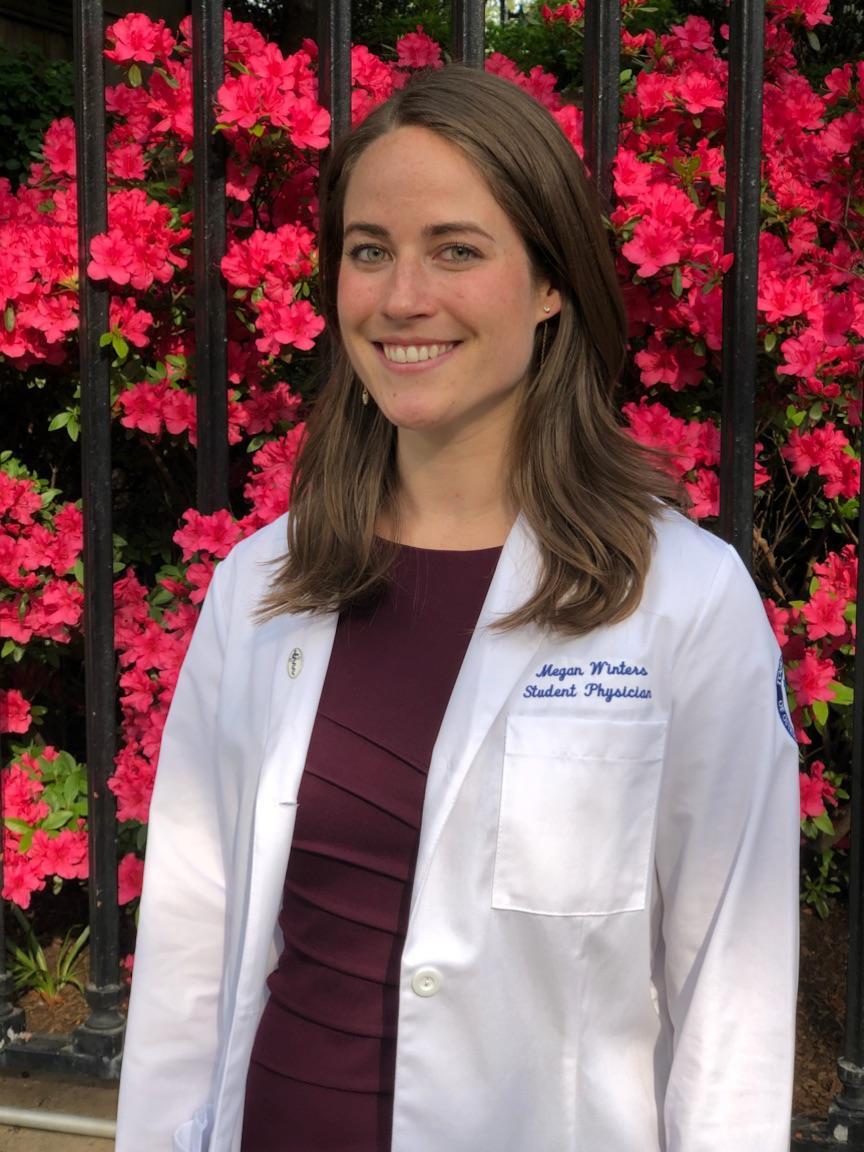Fighting Obesity Bias
TouroCOM OMS II Megan Winters Combats Stigma

One TouroCOM Harlem student wants to change the way doctors and medical students think about obesity.
OMS II Megan Winters was the sole medical student presenter at this year’s American Association of Colleges of Osteopathic Medicine Conference held in April. Her topic? Obesity bias among doctors and medical students.
Winters, a charismatic native of New Jersey began her presentation with a quote: “Weight stigma is one of the last remaining socially acceptable forms of discrimination and it is rarely, if ever, challenged.”
Winters’ interest in the topic began when she worked with a physician in Boston who specialized in obesity medicine.
“I started working with him and learned that physicians can do a lot more for their patients with obesity than simply telling them to eat less and exercise more,” she recalled. “Over that time, he also taught me about obesity bias—negative judgments and discriminatory behaviors toward individuals with excess weight—which I’ve come to realize is really pervasive in general society.”
Healthcare, she said, is not excluded either.
“Regardless of specialty all physicians frequently interact with patients with obesity. There’s stigmatization in comments doctors make to patients, like ‘Are you even trying to lose weight?’ or ‘There’s no way I can do an abdominal exam on you,’” explained Winters. “Those are examples of things that doctors have been known to say.”
While obesity bias in doctors and nurses has been studied, little research has been done about osteopathic medical students and obesity bias.
“I realized that there isn’t a lot of education in medical school with regards to this bias, or obesity in general, and I wanted to look into that,” she said. “I wanted to find out if there was a starting point for obesity bias in medical school.”
Winters had first-year and second-year students complete surveys about their thoughts on obesity. Her research indicated that there was a trend towards bias against persons with obesity as students spent more time in the medical school environment. She is planning on expanding the research to include third-year students before finalizing her conclusions. During her presentation she discussed her research as well as ways to combat obesity bias.
“I wanted people to understand that obesity is a disease and what the scope of it is,” stated Winters. “I wanted to stress that medical school is an important time to address this bias, as future physicians are beginning to form their professional identity. Finally, I wanted to demonstrate simple methods of tackling obesity bias professionally, individually, and socially.”
“In general, people see obesity as a lack of personal responsibility, instead of a disease,” remarked Winters. “The American Osteopathic Association, American Medical Association, CDC and the World Health Organization all consider obesity a disease. The factors that go into developing obesity are astoundingly complex, and we need to shift our thinking from blaming our patients to figuring out how we can best help them.”
“Many people assume that a patient with obesity is eating fast food and refusing to work out,” continued Winters. “But in reality, a lot of the patients I’ve seen have excellent diets and work out like crazy. It’s just really hard to fight your physiology.”
She credited TouroCOM’s Frank Gray 2018 Teacher of the Year Dr. Sonu Sahni with pushing her to develop a presentation for this year’s AACOM conference.
“He’s the whole reason I ended up giving a presentation,” Winters said. “He convinced me to apply and helped me with my submission and putting my thoughts together. It was very intimidating—being the only medical student presenting—but Dr. Sahni was there the whole time supporting me.”
One of her pieces of advice for medical students and doctors in helping their patients with obesity is changing the way the disease is spoken about.
“When we talk about obesity we use the language of personal responsibility, putting the onus on them instead of viewing it as a disease,” Winters said. “A person with excess weight has obesity, just like a person with a tumor has cancer. Our patients should not be identified solely by their disease; obesity doesn’t define a person.”
Using this language when treating patients with obesity can strengthen the patient-provider relationship and improve disease outcomes. Conversely, patients that feel they are being victimized for their weight are less likely to follow treatment plans and seek out future medical care.
“The most dangerous consequences of this stigma fall on our patients,” Winters concluded. “It’s a completely treatable and curable disease, yet we’re not leading our patients down the right road when we treat them as if their obesity is a part of them that’s impossible to change. If we can focus on the driving forces causing our patients to have obesity in the first place, rather than blaming them for their disease, we could be saving lives.”

